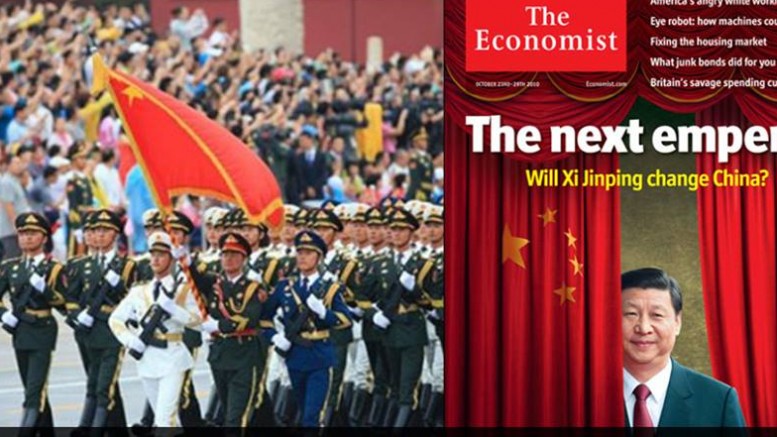Just before China’s Army Day on August 1, President and Central Military Commission (CMC) Chairman Xi Jinping elevated ten senior People’s Liberation Army (PLA) officers to full generals.
This was Xi’s most significant military move since the formal arrest of General Guo Boxiong, the former Politburo member and CMC Vice-Chairman last July on charges of massive corruption and dereliction of duty.
The PLA being Xi’s major support base, the supreme leader has since late 2014 promoted a large number of generals from the so-called Nanjing Military Region Faction. The strategic military region (MR) covers the provinces of Fujian and Zhejiang as well as Shanghai, where Xi served in senior positions in a remarkable career that stretched from 1985 to 2007.
Of the ten newly minted generals, four have close ties with the Nanjing MR. They are the current Nanjing MR Political Commissar Zheng Weiping; Commander of the Beijing MR Song Puxuan, who is a former vice-commander of the Nanjing MR; and two officers who distinguished themselves in the MR’s 31st Group Army, which is based in Xiamen, Fujian Province. They are Commander of the quasi-military People’s Armed Police Wang Ning is a former Commander of the 31st Group Army; and Navy Political Commissar Miao Hua, who at 59 is the younger full general in the PLA, served in the same group army for more than three decades.
It is significant that Xi has gone against time-honored military traditions in promoting his trusted underlings. According to a well-established PLA convention, candidates for promotion to full general must be a lieutenant general for at least four years; they also need to hold the post of head of a military region (or equivalent) for two years.
General Miao, however, who first got to know Xi when both were working in Fujian, was made a lieutenant general just three years ago; and he has been chief of a military region for only one year.
While Xi seems to have done well in consolidating his hold in the defense establishment, his ultimate goal of raising the PLA’s capacity and efficacy through getting rid of corruption and related misdemeanors is not yet within sight. As the Liberation Army Daily pointed out in a recent commentary, “corruption is the No. 1 spoiler of the army’s combat power.”
So far, Xi has used the anti-corruption campaign to get rid of two major factions in the PLA that grew powerful under the patronage of ex-presidents Jiang Zemin and Hu Jintao: the “Northwest Clique” led by General Guo and the “Northeast Clique” once headed by another disgraced CMC vice-chairman, the late General Xu Caihou.
There is, however, no institutional checks and balances within the defense establishment that could effectively rein in corruption. Investigations of graft-related offences among the top brass as well as rank and file are being conducted by the Military Commission on Disciplinary Inspection (MCDI), which is under the General Political Department of the PLA.
The MCDI is a totally nontransparent outfit that is responsible only to the CMC chairman. This essentially means that Xi is in a position to give preferential treatment to key PLA protégés who are suspected of having run afoul of party and military discipline.
Corruption in the PLA is deemed more pervasive than that in the party or government due to the army’s venerated status as “defender of the Chinese Communist Party.”
Willy Lam is a veteran journalist, Sinologist with more than 35 years of experience writing and researching China. He has published seven books on China, including Chinese Politics in the Era of Xi Jinping: Renaissance, Reform, or Retrogression? (Routledge, New York, 2015), which is the world’s first full-length English-language study of President Xi’s ideology and statecraft.
First published on Aug 20


Be the first to comment on "Xi consolidates power in PLA by promoting protégés to full generals"